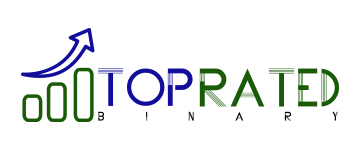Seniors who are facing financial challenges need a mortgage solution that helps them when facing economic hardship. For most seniors, they experience income restrictions when retiring. Seniors who must retire earlier than they planned don’t get the full benefit of their retirement savings. This, in turn, creates an inability to pay their monthly mortgage payments and presents the potential for becoming homeless. Reviewing what to expect from a reverse mortgage can help seniors find a solution.
What is a Reverse Mortgage?
A reverse mortgage is a mortgage program that helps seniors who are at least 62 years old get extra money and stop their mortgage payments. Essentially, the seniors are borrowing money and using their home as collateral for the reverse mortgage. The lender doesn’t transfer the title or deed of the property out of the homeowner’s name. When using a reverse mortgage, the homeowner is required to pay their property taxes and any other taxes related to their property. The homeowner is also required to continue to live in their home.
What are the Primary Requirements for the Mortgage?
The primary requirements for a reverse mortgage are that the property owner must be at least 62 years old. The homeowner must own their home or have an existing mortgage. If the home is financed, the owner must have a specific amount of equity built up in the property. The lender must complete a financial assessment for the borrower and determine eligibility according to any income restrictions that apply to the mortgage loans. The property must be insured by the homeowner’s insurance and a flood insurance policy if the property is in a designated flood zone. The owner must continue to pay their insurance premiums and maintain the property to retain its value and protect it appropriately.
What are Major Misconceptions about the Program?
The most major misconception about the reverse mortgage program is that it is free money and it doesn’t have to be paid back. This is not true at all. It is a loan program that helps seniors who cannot pay their mortgage payment and enables them to live in their homes throughout their lives. It also helps them pack off their existing mortgage and eliminate that debt. However, if the senior moves out of their home, the loan goes into repayment mode.
What Happens if the Homeowner Dies?
If the homeowner dies, their heirs are responsible for paying back the reverse mortgage. The family has two options when it comes to paying back the mortgage. They can either pay back the full balance, or they can sell the property to generate the funds to pay off the mortgage. The full balance will include the total loan value, interest applied over the years, and any fees applied each month when no mortgage payment was submitted by the homeowner.
Seniors who are experiencing financial hardships due to sudden changes in income have a new solution for managing their mortgage payments. Lenders provide reverse mortgage programs specifically for seniors and help them quickly. Seniors who want to learn more about applying for a reverse mortgage can contact Dustin Dimisa for more information now.

